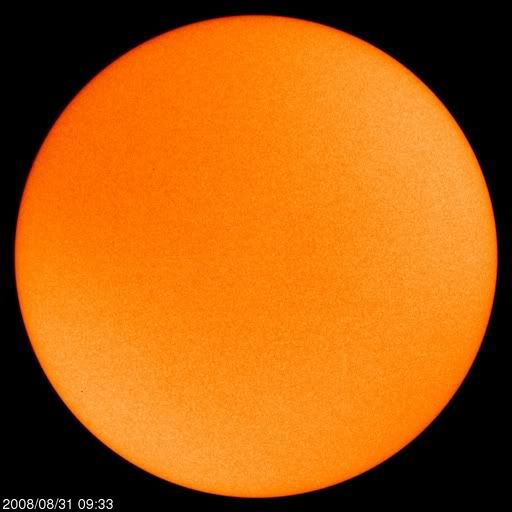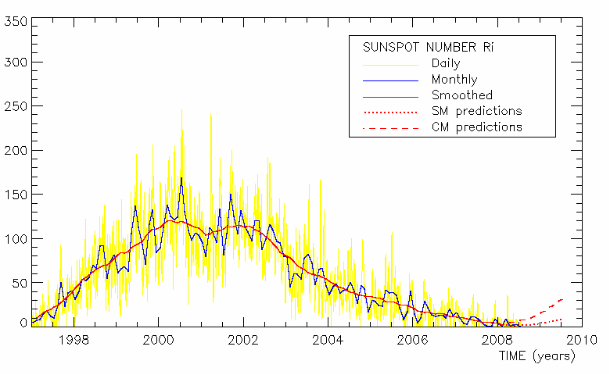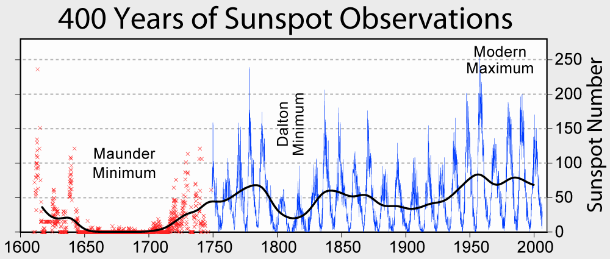From Mike's America:
No Sun Spots Means Bigger Problem: Global Cooling, NOT Global Warming
Another nail in the globaloney coffin!What could be worse than Al Gore's apocalyptic scaremongering on global warming? A new ice age brought on not by man's emission of CO2 but the Sun taking a holiday.
It's a definite possibility especially with this latest news:
No spots means no warming and might mean rapid cooling.
Sun Makes History: First Spotless Month in a CenturySunspot activity of the past decade. Over the past year, SIDC has continually revised its predictions downward (Source: Solar Influences Data Center)
By Michael Asher
Daily Tech
September 1, 2008
Drop in solar activity has potential effect for climate on earth.
The sun has reached a milestone not seen for nearly 100 years: an entire month has passed without a single visible sunspot being noted.
The event is significant as many climatologists now believe solar magnetic activity – which determines the number of sunspots -- is an influencing factor for climate on earth.
According to data from Mount Wilson Observatory, UCLA, more than an entire month has passed without a spot. The last time such an event occurred was June of 1913. Sunspot data has been collected since 1749.
When the sun is active, it's not uncommon to see sunspot numbers of 100 or more in a single month. Every 11 years, activity slows, and numbers briefly drop to near-zero. Normally sunspots return very quickly, as a new cycle begins.
But this year -- which corresponds to the start of Solar Cycle 24 -- has been extraordinarily long and quiet, with the first seven months averaging a sunspot number of only 3. August followed with none at all. The astonishing rapid drop of the past year has defied predictions, and caught nearly all astronomers by surprise.
...
In the past 1000 years, three previous such events -- the Dalton, Maunder, and Spörer Minimums, have all led to rapid cooling. One was large enough to be called a "mini ice age". For a society dependent on agriculture, cold is more damaging than heat. The growing season shortens, yields drop, and the occurrence of crop-destroying frosts increases.
A chart of sunspot activity showing two prior solar minima, along with heightened activity during the 20th century (Source: Wikimedia Commons)
And lest you think a new ice age would be better than global warming, think again. Famine, disease, death and political chaos worldwide would likely be the result.





